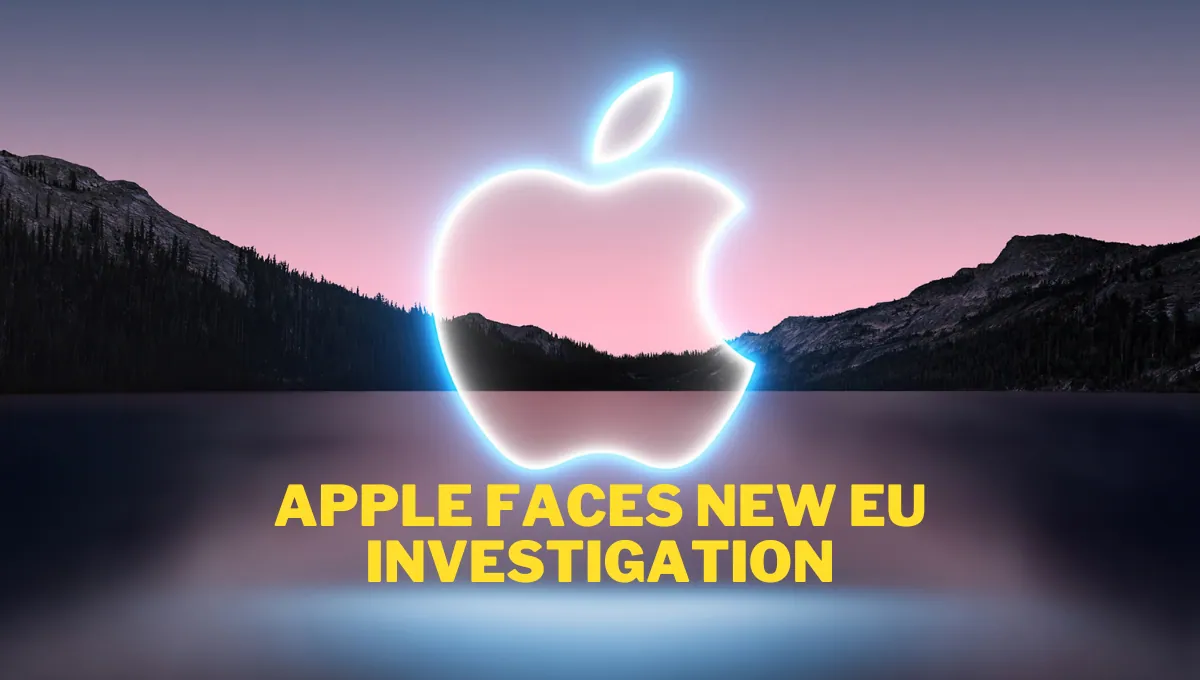Apple Inc. has found itself in hot water again as European Union (EU) antitrust regulators accused the tech giant of breaching the bloc’s technology regulations.
This new charge, announced on Monday, could lead to a significant fine for the iPhone maker, which is also under scrutiny for recent fees imposed on app developers.
The EU’s Digital Markets Act (DMA) is at the heart of this investigation, aiming to curb the dominance of Big Tech and promote fair competition.
The European Commission, responsible for antitrust and technology regulation, has sent its preliminary findings to Apple, marking the beginning of what could be a landmark case under the DMA.
Preliminary Findings and Potential Consequences
The European Commission launched its investigation into Apple in March and has now communicated its initial conclusions to the company.
This marks the first instance where the Commission has charged a company under the DMA, which was enacted to ensure a level playing field for smaller tech rivals and to limit the power of major tech corporations.
The Commission has until March next year to deliver a final decision on the matter.
Violations of the DMA could result in fines as high as 10% of a company’s global annual revenue. Given Apple’s substantial earnings, this could translate to a hefty financial penalty.
EU antitrust chief Margrethe Vestager highlighted concerns with Apple’s new business terms, indicating that they do not align with DMA requirements.
However, Apple has the opportunity to avoid fines by addressing these concerns and modifying its terms accordingly.
Issues with Apple’s New Business Terms
One of the primary issues identified by the Commission is that Apple’s new terms do not permit app developers to freely communicate with their end users or to conclude contracts directly with them.
Vestager explained at a conference that these terms hinder app developers’ ability to engage directly with their customers.
She emphasized that while it is up to Apple to determine how to comply with the DMA, the current terms fall short.
The Commission criticized Apple’s policy of allowing steering only through ‘link-outs’.
This means app developers can include a link within their app that redirects customers to an external webpage where contracts can be concluded.
This restriction is seen as limiting the developers’ ability to conduct business within their apps.
Additionally, the Commission took issue with the fees Apple charges developers for facilitating the initial acquisition of new customers via the App Store.
These fees are deemed excessive and not strictly necessary for the services provided.
Apple, however, defended its position, stating in an email that it believes its plan complies with the law and that more than 99% of developers would pay the same or less under the new terms.
Delayed AI-Powered Features
Adding to the controversy, Apple recently announced a delay in the launch of its AI-powered features in the EU, attributing the postponement to the DMA.
Vestager expressed criticism over this delay, suggesting that Apple implied its AI integration might be anti-competitive.
This development has further complicated Apple’s relationship with EU regulators and could impact the ongoing investigation.
The Digital Markets Act and Its Implications
The DMA represents a significant shift in how the EU approaches regulation of major technology companies.
Its goal is to prevent the establishment of gatekeepers who can control access to markets and stifle competition.
Companies designated as gatekeepers under the DMA are subject to stricter rules designed to foster competition and innovation.
For Apple, this means adhering to regulations that ensure fair treatment of all market participants, including smaller competitors and app developers.
The ongoing investigation will serve as a critical test case for the DMA and its enforcement mechanisms.
A ruling against Apple could set a precedent for how the EU handles similar cases in the future.
Apple’s Response and Future Steps
In response to the Commission’s findings, Apple expressed confidence that its new business terms comply with the law.
The company emphasized that the majority of developers would not see an increase in fees.
However, Apple must now decide how to adjust its practices to meet the Commission’s requirements and avoid potential fines.
The company is likely to engage in discussions with EU regulators to address the identified issues.
By modifying its terms and policies, Apple can demonstrate its commitment to complying with the DMA and maintaining a positive relationship with the EU.
Conclusion
Apple’s recent clash with EU antitrust regulators highlights the growing scrutiny faced by major technology companies.
The European Commission’s preliminary findings indicate that Apple’s new business terms may violate the DMA, potentially leading to significant fines.
This investigation underscores the importance of fair competition and the EU’s determination to hold tech giants accountable.
As the March deadline approaches, Apple will need to navigate these regulatory challenges carefully.
By addressing the Commission’s concerns and aligning its practices with the DMA, Apple can mitigate potential penalties and continue to operate successfully within the European market.
Industry stakeholders will closely watch this case and could have far-reaching implications for the enforcement of tech regulations in the EU.
